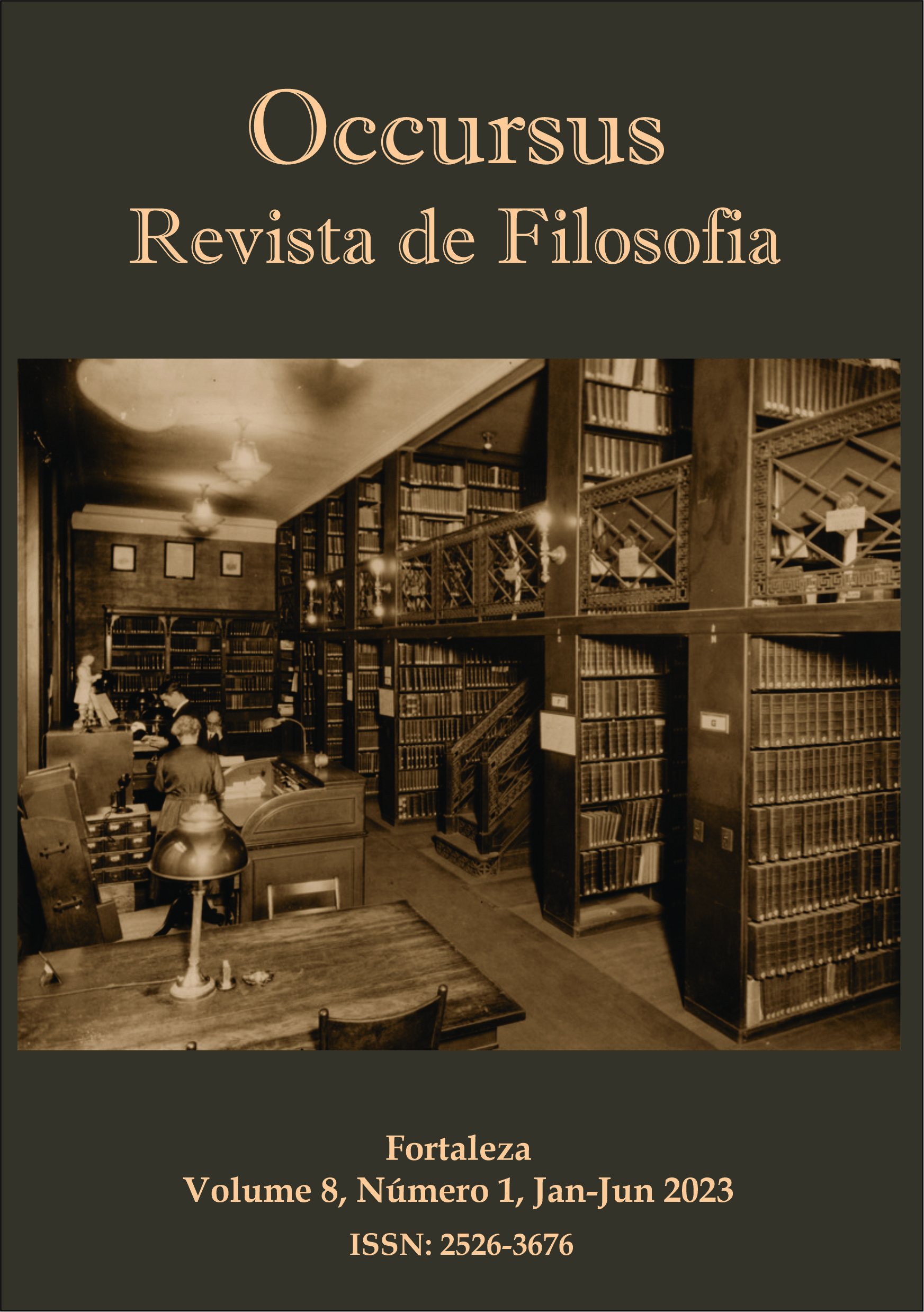Sobre a dualidade do conhecimento humano:
uma sociologia histórica e filosófica das estruturas estruturantes e estruturadas pela antinomia
Palavras-chave:
Dualidade. Pares. Oposição. Equilíbrio. Conhecimento.Resumo
A proposta deste trabalho consiste em analisar os principais conceitos ou autores antinômicos da história ocidental. Demonstrando como há muito se estabelece o entendimento ou a visão de mundo através de pares oposicionais. A filosofia histórica e sociológica que ocorre neste trabalho ressalta a oposição, comparação ou crítica como ferramenta chave para classificar e entender o mundo. Apesar de apenas tangenciar os principais conceitos dos autores citados, este trabalho esforça-se para esclarecer as oposições e acima de tudo aproximar as antinomias, numa tentativa de enxergar a conexão que há entre elas. Para isso passaremos por todas as fases históricas civilizadas, mais especificamente começando pelos pré-socráticos e finalizando nos pós-modernos. O equilíbrio foi a conclusão atingida, conclusão essa já esperada inicialmente, mas que demonstrou como as partes são divididas e como o compreendimento, conexão ou a união do todo é, possivelmente devido a pergunta, em partes a resposta e em partes a falta dela.
Referências
APOLODORO, Biblioteca, L. I, 1.4.
ARISTÓTELES. Organon. Lisboa: Guimarães, 1985.
BACON, Francis. Novum organum ou verdadeiras indicações acerca da interpretação da natureza. Homepage do grupo:<http://br.egroups.com/group/acropolis/>. Créditos da digitalização: Membros do grupo de discussão Acrópolis (Filosofia).
BARROS FILHO, Clovis de. Deuses para Clarice. São Paulo: Benvira, 2018.
BAUMAN, Zygmunt. O mal-estar da pós-modernidade. Rio de Janeiro: Jorge Zahar, 1998.
BOURDIEU, Pierre. A distinção: crítica social do julgamento. São Paulo: Edusp, 2007.
BOURDIEU, Pierre; CHAMBOREDON. Jean-Claud; PASSERON. Jean-Claude. Le métier de sociologue. Paris: Mouton, 1983.
BOURDIEU, Pierre. Le sens pratique. Paris: Editions de Minuit, avec le concurs de la Maison des Sciences de l’Homme, 1980.
DESCARTES, René. Discurso do método. São Paulo: Martins fontes, 1996.
DURKHEIM, Émile. As regras do método sociológico. São Paulo: Martins Fontes, 2007.
EMPIRICO, Sexto. Hipotiposes Pirrônicas. Livro I. Tradução de Danilo Marcondes. O que nos faz pensar, [S.l.], v. 9, n. 12, p. 115-122, june 1997. ISSN 0104-6675. Disponível em: <http://www.oquenosfazpensar.fil.puc-rio.br/index.php/oqnfp/article/view/130>.
FREUD, Sigmund. O mal-estar na civilização, novas conferências introdutórias e outros textos. V. 18. São Paulo: Schwarcz, 2010.
GRAMSCI, Antonio. Cadernos do Cárcere. V. 1. Rio de Janeiro: Civilização Brasileira, 1999.
HALL, Stuart. A identidade cultural na pós-modernidade. Rio de Janeiro: DP&A, 2005.
LAO, Tzu. Tao te ching: o livro do caminho e da virtude. 2019. Disponível em: <https://luzdovazio.files.wordpress.com/2019/08/lao-tzu-tao-te-ching-fang-chen.pdf>.
LÉVI-STRAUSS, Claude. A estrutura dos Mitos. Rio de Janeiro: Tempo Brasileiro, 1970.
LOCKE, John. Segundo tratado sobre o governo civil: ensaio sobre a origem, os limites e os fins verdadeiros do governo civil. Petrópolis, RJ: Vozes, 1994.
LÖWY, Michael. A teoria da revolução no jovem Marx. Petrópolis, RJ: Vozes, 2002.
MONASTA, Attilio. Antonio Gramsci. Recife: Massangana, 2010.
PLATÃO. A República. Lisboa: Fundação Calouste Gulbenkian, 1949.
PLEKHANOV, Gueórgui Valentinovitch. A concepção materialista da história. Rio de Janeiro: Paz e Terra, 1978.
ROUSSEAU, Jean-Jacques. Do contrato social. Homepage: ///C|/site/livros_gratis/contrato_social.htm. Edição eletrônica: Ed Ridendo Castigat Mores (www.jahr.org).
TARDE. Gabriel. Monadologia e sociologia e outros ensaios. São Paulo: Cosac & Naify, 2007.
Downloads
Publicado
Como Citar
Edição
Seção
Licença
Copyright (c) 1969 Márcio Fernando da Conceição

Este trabalho está licenciado sob uma licença Creative Commons Attribution 4.0 International License.




